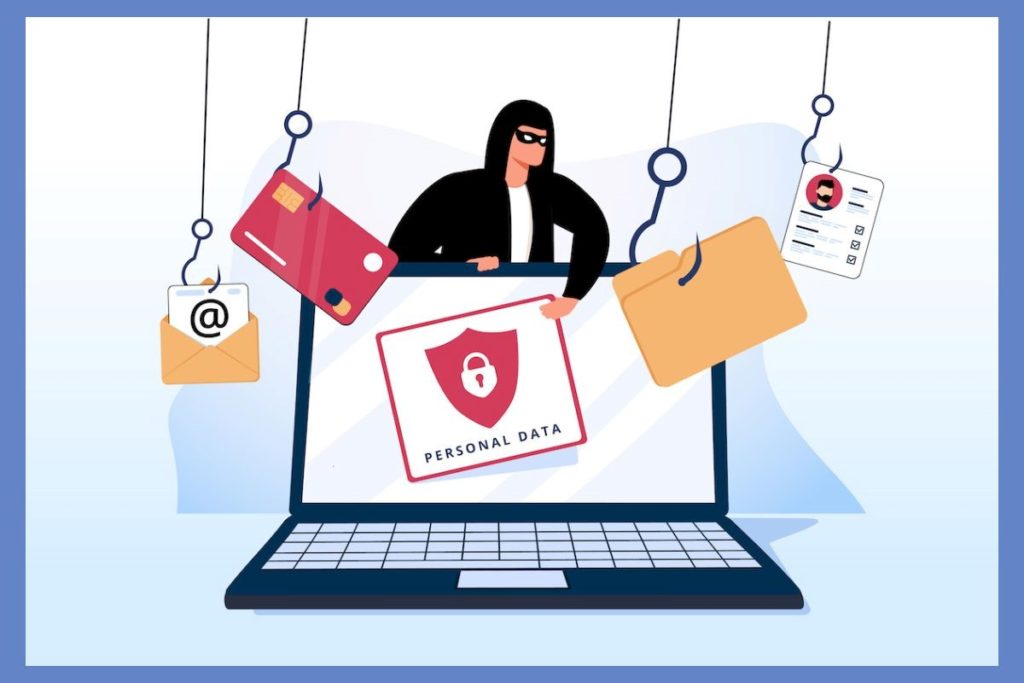By Alfred Koroma
‘’The old adage: If it seems too good to be true, it probably is, remains particularly relevant.” That was the response from Richmond Redwood-Sawyerr, Director of Cyber Resilience at the Sierra Leone’s National Cybersecurity Coordination Centre.
He was responding to my question on how his office, National Cybersecurity Coordination Centre (NC3) protects people from falling into online scams.
This was after over one thousand Sierra Leoneans had been recently defrauded with funds, amounting to over nine billion Leones ($369,000.00) by an online business platform dubbed as Super Advertis.
The platform used mobile Money platforms, operated by Orange and Africell, Sierra Leone’s telecom companies to collect funds from people promising to repay them with huge profit or commission.
Super Advertis presented itself as an online advertising platform, requesting people to create an account through its website or its application on Google Playstore. After creating the account, subscribers were required to deposit money into their accounts through a mobile money agent code presented to them when they click the deposit option shown on the platform. The subscribers were then required to perform tasks and get commission as profit for their funds deposited.

Super Advertis operated in Sierra Leone for over two months without license.
The scammer made people to believe the more money they deposit into the system, the more the profit they make from the task performed. Different promotional products were presented by the platform with some requiring subscribers to deposit NLe 1,000 for 30 days and get NLe8, 000 while those who deposited NLe10, 000 were promised 168 million in return as benefit.
But in reality, the platform was a Ponzi scheme, operating by reimbursing existing investors from funds deposited by new investors.
Many Sierra Leoneans got attracted and lured into the scam, particularly young people, most of them university students who had deposited their tuition fees, petty traders, commercial bike riders and other public transport operators.
Having hit its target, the online platform closed in December after operating for two months without license, getting away with huge sum of cash and leaving the victims bewildered.
Some of the victims said they had actually entered into the online business because the transaction involved was being done through Mobile Money, operated by the biggest telecom companies. “Because Orange Money was involved, it felt like everything was authentic,” Lamin Kamara one of the victims who claimed to have lost twenty million old Leones (Le 20,000,000) said.
This is not the first time Sierra Leoneans have been lured into such scams. When it comes to digital scam or cyber threats, the country’s population stands enormously vulnerable as many lack knowledge about digital scam, cyber threats and the means to avoid them.
Few are safety minded when it comes to dealing with computer systems or online space, but majority oftentimes expose themselves to online threats, or fall for scams in which they easily put their resources into or ignorantly give up access to their personal information or even their bank accounts.
According to the country’s National Cyber Security Coordination Centre, there is an exponential increase in cybercrimes in Sierra Leone, with crimes such as financial fraud and online scams, hacking and cyber-attacks on government and private sector systems, phishing attacks, distribution of malware and ransomware, identity theft, data breaches and unauthorized access to information, online defamation and cyberbullying and harassment being the most prevalent.
The reason why most people are not panicking or discussing about the rise in these crimes is mainly due to the lack of awareness of cybercrime and its impact, Redwood-Sawyerr said. Most people do not know about what constitutes a cybercrime. As a result, the only cases they mostly report are mainly larceny involving phone theft.
Safety of the cyber space

Credit: iStock images
In 2021, government established the National Cybersecurity Coordination Centre (NC3) and the National Cybersecurity Advisory Council to manage online safety, cybersecurity issues and aid the fight against cybercrime.
These bodies provide policy guidelines for the implementation of relevant legislation, and the development of educational programs and research in cyber security defenses, techniques, and processes.
But since it was established only few years ago, the country’s cybersecurity centre is still not fully prepared to tackle threat posed by the growing trends of digital technology and artificial intelligence.
To achieve a certain acceptable level of safety in the cyber space requires a complete establishment of various critical institutions, developing processes, enforcing them and implementing security measures to secure information infrastructure that have particularly been identified as crucial, Redwood-Sawyerr said.
Work is ongoing to ensure a safer cyber space and that bodies such as the National Computer Security Incident Response Team is at its formative stage to enable Sierra Leone prevent, detect, mitigate, and respond effectively to cyber incidents.
The case of Super Advertis, Redwood-Sawyerr said, underscores a growing concern in the digital age, where fraudulent schemes are becoming increasingly sophisticated. “Our primary objective is to safeguard citizens against such deceptions through raising awareness about cybersecurity and educating the public about the nature of online scams, how they operate, and the red flags to look out for”
Avoiding cyber threat and online scam

Image from Michelle Ricker on how to avoid online scams
Cyber threat, according to Bitesize occurs when risk is posed to a computer system from an internet source, often combining to increase the probability of harm to a system.
With the rapid development of digital technology such as the Internet, artificial intelligence, sophisticated threat actors and tools; the cyber landscape is continuously changing together with the way criminals use the internet, making it almost impossible to be 100% secured.
This means, anyone can fall victim of any of the cyber incidents. Still, NC3 offered some strategies that can be of help in mitigating or preventing people from cyber dangers.
A fundamental, yet often overlooked aspect is the use of strong, unique passwords, Redwood-Sawyerr says, a significant number of security breaches stem from weak password practices, but regularly updating passwords enhances security significantly. That goes with reinforcing security, multi-factor authentication tool. It adds an additional security layer and reduces the risk of unauthorized access.
Keeping software and systems updated is also crucial, he said. These updates often contain patches for vulnerabilities that could be exploited by cybercriminals. It’s akin to fortifying our digital defenses. Wi-Fi network security, particularly in public spaces, is another essential aspect. Ensuring these networks are secure, encrypted, and hidden is paramount to preventing unauthorized access.
Next is data backups, which the cyber expert says play a critical role, especially in mitigating the impact of ransomware attacks. Regular and secured backups of data ensure preparedness in the face of potential cyber threats, he said, noting that compliance with legal standards and the implementation of robust cybersecurity policies in workplaces are not just best practices but essential requirements.
Online content have become fundamental aspect of human interaction but not all online content can be trusted. So in dealing with online investment opportunities for example, Redwood-Sawyerr emphasized the importance of always being skeptical.
“We advise citizens to thoroughly research any online platform or investment opportunity before committing funds and to be wary of any scheme that promises unusually high returns in a short period.” “The old adage: if it seems too good to be true, it probably is,’ remains particularly relevant.”
This report was produced under the DPI Africa Journalism Fellowship Programme, organized by the Media Foundation for West Africa with support from Co-Develop.





